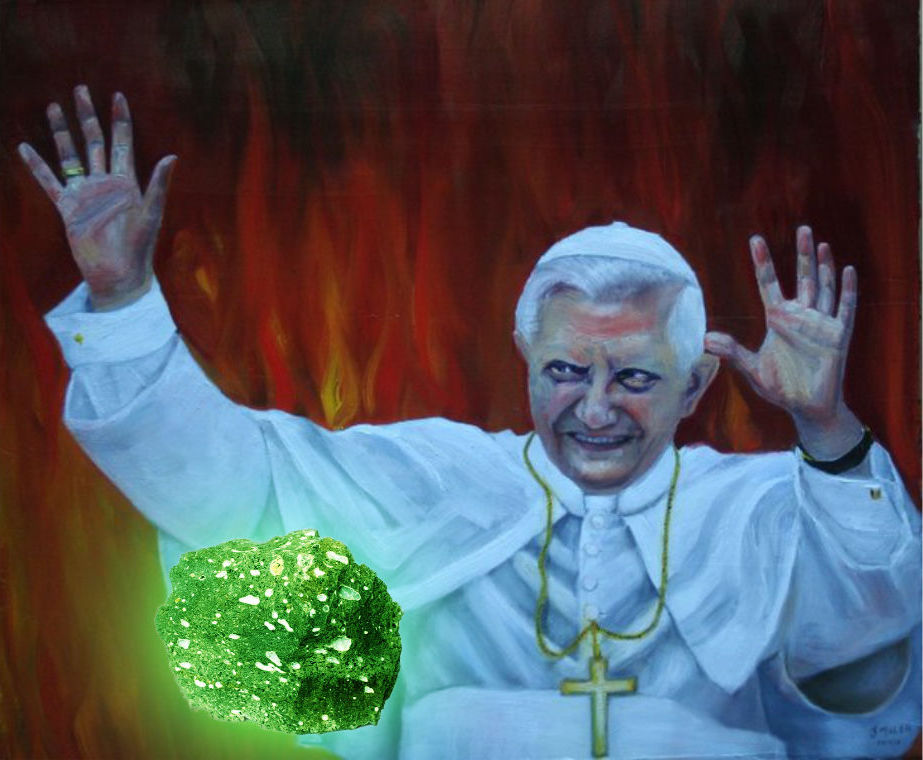
Christianity is facing an existential threat, the biggest in its two-thousand-year history. It could well destroy the core tenets of the faith, perhaps even Christianity itself. Can Christianity survive this threat? Perhaps, but if so, it will be in a vastly changed form.
No, it’s not atheism. It’s not other religions. It’s not secular government. It’s not aliens landing.
The threat is from a flaw in Christianity itself: human immortality will blow out the foundations of Christian theology.
One of the core beliefs of Christianity, even more fundamental than Jesus himself, is that we are inherently sinful, and in fact tainted with sin from the day we’re born. Because of this, God created Jesus (who was really God after all, but that’s a different story) and had him tortured and killed as punishment. It was a peculiar proxy payment for all our sins. And, in order to avoid hell and get into heaven when we die …
Wait. You, dear reader, are probably ahead of me here. It’s that “when we die” part that’s the problem, right?
What the heck happens to Christianity when scientists achieve medical breakthroughs that make us immortal?
Without death, the entire basis of Christian theology is moot. No more death, so no more consequences for sin! There’s no reward in heaven, no torture in hell. Even if your name is on Satan’s list, he’ll never have the pleasure of welcoming you to the eternal fires.
If you’re going to live forever, what’s the down side to sinning? Lust, greed, gluttony, pride, envy, wrath, and sloth? Fun stuff, and no consequences! (As long as you don’t get caught by the cops or shot by a jealous husband.) Now admittedly, even if you’re immortal, you could still look to Christian ethics for your moral compass if you don’t have one of your own. But if your only reason for being good and kind is because the Church has rules and consequences, it’s party time!
That means Jesus died for nothing.
Why didn’t God see that coming?
This is a surprisingly deep problem for Christianity. Religions, and Christianity in particular, are a vast “memeplex” of interlocking, mutually supporting beliefs. The concept of God, for example, has morphed over the past four thousand years from a local, flesh-and-blood god-of-armies into an all-powerful, all-knowing, asexual, moral, universal, kind, loving God who created the universe ex nihilo. Take away any part of that memeplex and God is much less appealing. For example, what if the all-powerful God had sexual lust (as did his earlier incarnations in the time of Abraham, along with most of the other gods of the time)? Would you have the same respect for a God who came to Earth from time to time to rape young women? Probably not. Or what if he weren’t all-powerful, or could only hear prayers in the Middle East? The god worshiped by Christians today is the complete package; you can’t pick and choose features and still think he’s God.
It’s very parallel to biological evolution. Take all of the genes that make a bear, and (for example) drop the one for sharp claws. It’s bad news for the bear. As genes evolve, they evolve together as a mutually supporting group. So it is for religion. Take away one part, and the rest can fall.
When human immortality is finally achieved (I’m asserting that it’s inevitable; arguments on this point are for a different day), it instantly removes a number of the core tenets of Christianity. The whole point of Jesus’ sacrifice becomes moot. Heaven and hell are rendered silly. The need for redemption and forgiveness are gone. There’s no need to be baptized into the church. In a nutshell, Christianity loses almost the entirety of its “enforcement” concepts. Pull out this many parts of the foundation and the whole thing could collapse.
And it wouldn’t require that immortality treatments be universally available. Even if only a few of the very richest billionaires on the planet could afford immortality, it would still be a profound blow to Christianity. It would be deeply unfair, a situation that would surely make many question the faith. Because though the masses know death awaits, why would God have allowed rich people to escape His judgement?
This isn’t a small thing. It’s not some detail. This is the very heart of Christianity.
Painting: Critical Mass (Pope Benedict XVI).jpg by James Miller, modified by C.A. James. Creative Commons Attribution-Share Alike 3.0; Stone (kryptonite): Basalt – amygdaloidal structure.jpg by Marek Novotňák, Creative Commons Attribution-Share Alike 4.0. Modified by the author; free to use under the original licenses.

Recent Comments